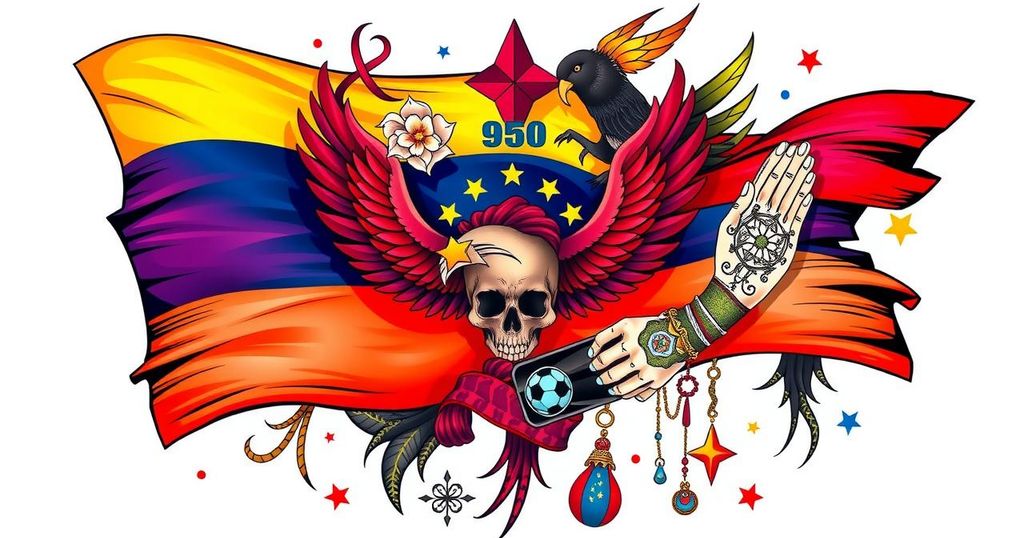Recent deportations of Venezuelan asylum seekers from the U.S. have been controversially linked to tattoos. Officials have associated tattooed individuals with membership in the Tren de Aragua gang, despite evidence of their lack of criminal history. This situation reflects a troubling trend in immigration enforcement amidst a broader context of seeking asylum due to harsh living conditions in Venezuela.
The deportation of Venezuelan asylum seekers from the United States has stirred controversy, particularly regarding the implications of tattoos. An official document from the Department of Homeland Security characterizes individuals with tattoos as potential members of the Tren de Aragua gang, despite the absence of a documented criminal history. This classification has raised concerns about the criteria used in assessing deportability.
Franco José Caraballo Tiapa, an asylum seeker with a passion for tattoos, exemplifies this issue. He bears tattoos that pay homage to his family and his craft as a barber. His attorney emphasizes that tattoos in Venezuela do not signify gang affiliation, contrasting them with Central American gang practices.
The U.S. government recently designated Tren de Aragua as a foreign terrorist organization, which has permitted officials to employ the Alien Enemies Act for deportations under the guise of national security. This development has led to individuals being uprooted without adequate representations of their situations.
Neri José Alvarado Borges, a deported psychology student, also faced mischaracterization due to his tattoos, which primarily express familial connections. His sister voiced concerns, noting that many individuals are fleeing Venezuela’s dire conditions, which include economic hardships and political repression.
The story of Luis Carlos José Marcano Silva, another Venezuelan barber, reinforces this narrative. Despite his three tattoos symbolizing religious and personal values, he was similarly accused of being linked to Tren de Aragua. Such instances highlight a troubling trend where tattoos alone can signify guilt by association in the eyes of immigration authorities.
Among others, Francisco Javier García Casique and Anyelo Sarabia González have also encountered deportation stemming from tattoo-related misunderstandings. Statements from family members of these detainees reflect frustration, contending that their loved ones are unfairly targeted based on superficial indicators. The Biden administration’s portrayal of these deported individuals as “heinous monsters” raises ethical questions, especially in the absence of public disclosures regarding their alleged crimes.
The situation surrounding the deportation of Venezuelans based on tattoos underscores a troubling aspect of current immigration enforcement practices. Many deported individuals, like Franco José Caraballo Tiapa and Neri José Alvarado Borges, have no criminal ties to gangs yet suffer the consequences of misinterpretations regarding tattoos. This incident highlights the urgent need for clear guidelines and compassionate considerations in handling cases involving migrants fleeing desperate circumstances.
Original Source: www.ndtv.com






